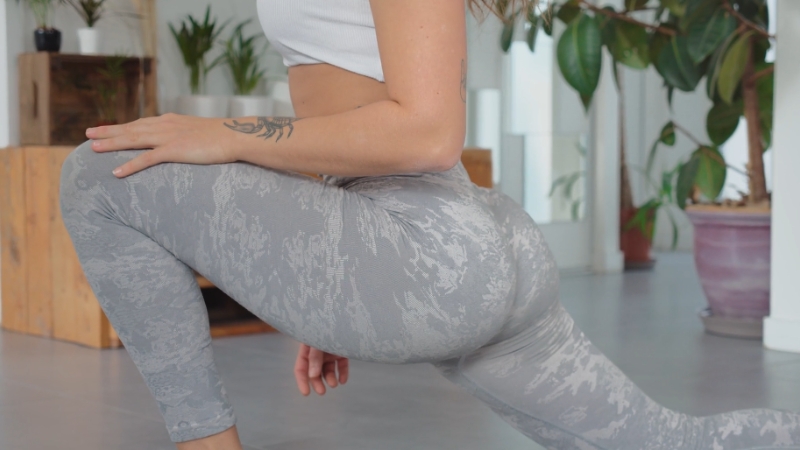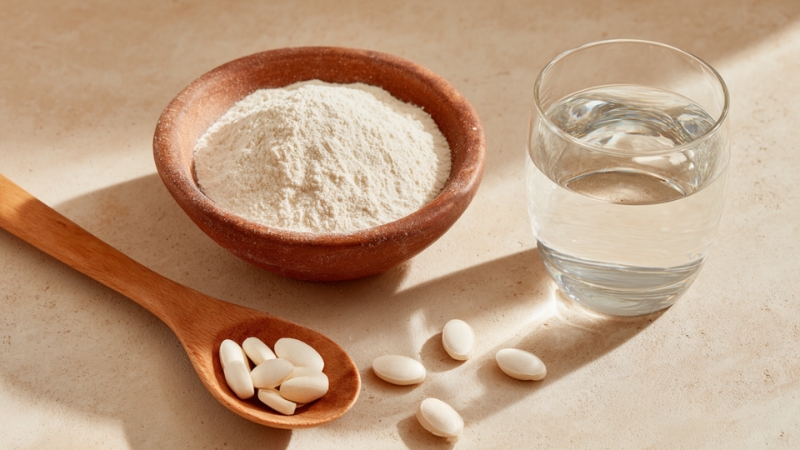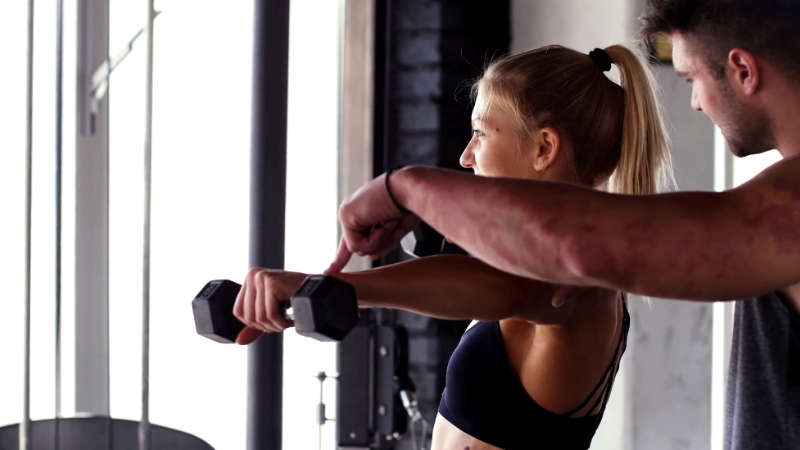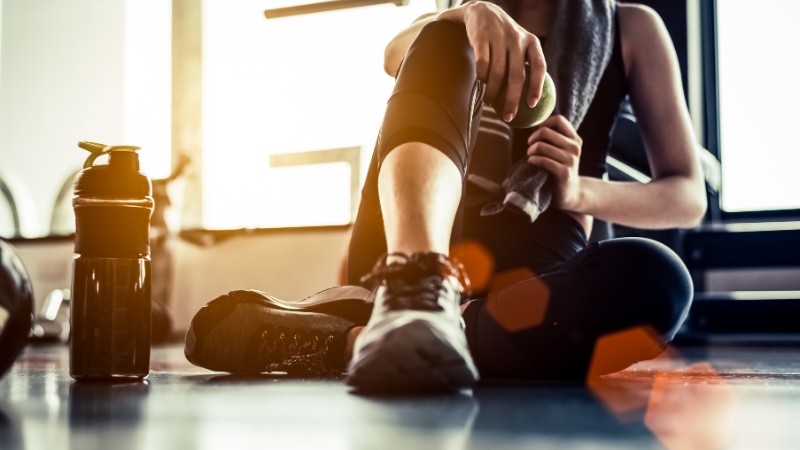
Share Post:
There’s no feeling quite like crushing a tough workout – heart racing, muscles burning, sweat pouring. You know you pushed it. But what comes after can make or break your progress.
The soreness. The stiffness. That sluggish feeling the next day when you wonder if your legs will ever forgive you for leg day.
Recovery is where the magic happens. That’s when your body repairs and rebuilds stronger than before. But not all recovery strategies are created equal. If you want to bounce back quickly and safely, you need more than just wishful thinking and a cold protein shake.
This is a practical, evidence-backed guide to what actually helps your body recover faster after a brutal gym session. Just real tips, real science, and methods that get you back in the game without skipping a beat.
Key Highlights
- Prioritize sleep, protein intake, and hydration to speed up muscle recovery.
- Proven methods like massage, compression, and cold water immersion actually reduce soreness and fatigue.
- Active recovery (like walking or light yoga) boosts circulation and healing without stressing the body.
- Smart training splits and regular rest days prevent overtraining and support long-term progress.
What Happens to Your Muscles After an Intense Workout
Let’s get something straight: soreness isn’t a badge of honor, and it’s not always a sign of progress. When you work out hard, especially with heavy weights or intense intervals, your muscle fibers develop microscopic tears.
Your immune system jumps in, triggering inflammation, which leads to that familiar next-day ache known as DOMS (delayed onset muscle soreness).
You’ll also see spikes in certain biological markers:
- Creatine kinase (CK) – shows muscle damage
- IL-6 and C-reactive protein (CRP) – signal inflammation
Recovering properly helps reduce those markers, prevent injury, and let your muscles grow stronger.
What You Do Immediately Matters

1. Cool Down and Stretch (But Don’t Overdo It)
After your last rep, don’t just drop the dumbbells and call it a day. A proper cooldown keeps your blood flowing and eases the shift into recovery mode.
- How: Walk or cycle lightly for 5-10 minutes to lower your heart rate gradually.
- Stretching: Static stretches are fine post-workout, especially for major muscle groups you’ve worked. Just be gentle; overstretching tired muscles can backfire.
2. Hydrate and Replenish Electrolytes
Sweat isn’t just water—it’s loaded with electrolytes your body needs for muscle function and recovery.
- Goal: Drink about 1.5 liters of water per kilogram of weight lost during training.
- Electrolytes: Replenish sodium, potassium, calcium, and magnesium with real food or a quality sports drink.
3. Refuel With Protein and Carbs
You’ve heard it before, but timing matters less than consistency with your nutrition.
- Protein: Helps rebuild torn muscle fibers. Aim for 20-25g within an hour post-workout.
- Carbs: Refill glycogen stores that fuel your muscles.
Proven Recovery Methods
Plenty of recovery tactics get tossed around—some helpful, others… not so much. A 2018 meta-analysis dug deep into what actually moves the needle on muscle soreness, fatigue, and inflammation. Here’s how the top methods stack up:
What Works Best
| Recovery Technique | Best For | Scientific Effectiveness* |
| Massage | DOMS, fatigue, inflammation | ★★★★★ |
| Compression Garments | Soreness, fatigue | ★★★★☆ |
| Cold Water Immersion | Inflammation, fatigue | ★★★☆☆ |
| Contrast Therapy | Muscle damage | ★★★☆☆ |
| Cryotherapy | Inflammation | ★★☆☆☆ |
| Active Recovery | DOMS | ★★★☆☆ |
| Stretching | Mixed results | ★☆☆☆☆ |
How to Use Each Recovery Technique Properly
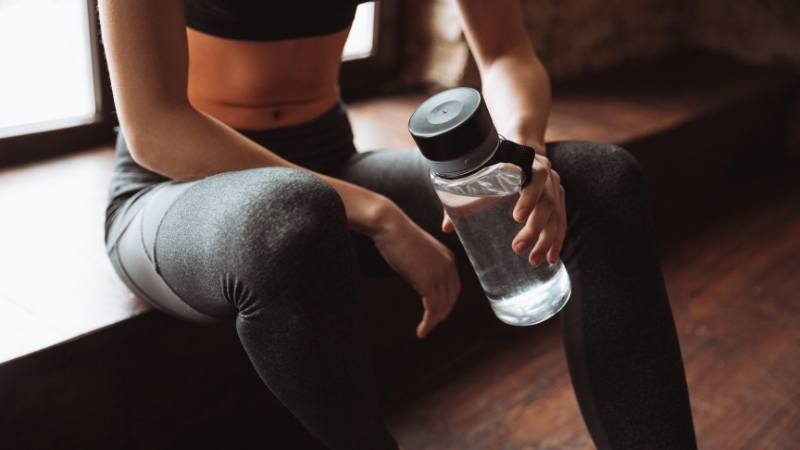
1. Massage
Massage really works. It increases circulation, decreases muscle stiffness, and significantly reduces both soreness and fatigue.
- When: Within 24-72 hours post-workout
- How: Foam roll for 10-15 minutes or book a professional massage focused on recovery
2. Compression Garments
Wearing tight but breathable clothing post-workout can reduce swelling and speed up recovery.
- When: Immediately post-exercise, ideally for at least 4 hours
- What: Compression leggings or socks
3. Cold Water Immersion
Cold exposure shrinks blood vessels and reduces inflammation, though results can vary.
- How: Dip in a cold tub or take a 10-15 minute shower below 15°C
- When: Within 1-2 hours of training
4. Contrast Water Therapy

Alternating between hot and cold water can improve circulation and relieve soreness.
- How: 1-2 minutes in hot water, followed by 1-2 minutes cold, repeat 4-5 times
- Best For: Reducing muscle damage
5. Cryotherapy
Exposing your whole body to extremely cold air (-100°C or colder) has become trendy, and for good reason—it lowers IL-6 levels, reducing inflammation.
- How: Visit a cryotherapy chamber or apply localized ice packs
- When: Within 6 hours of your session
6. Active Recovery
Movement helps healing. Light activity boosts blood flow and flushes out waste products without stressing your muscles.
- How: Try low-impact activities like walking, swimming, or gentle yoga
- When: The day after intense training
Nutrition That Supports Recovery All Day Long
@wilsoncoaching What should you eat after your workout? Credit: @eloraagummerson #wilsoncoaching #gymtok #gymtiktok #gym #fitness ♬ original sound – Shiv Wilson
You can do all the stretching and soaking in the world, but if your nutrition’s off, recovery slows down. Here’s what to dial in:
Prioritize Daily Protein Intake
- Goal: 1.6-2.0g protein per kg of body weight, spread throughout the day
- Sources: Chicken, fish, eggs, Greek yogurt, tofu, lentils, whey protein
Don’t Neglect Carbs
- Carbs replenish glycogen, your body’s main fuel during workouts
- Combine with protein for a better anabolic response
Add Antioxidant-Rich Foods
Foods high in antioxidants fight off free radicals and help reduce inflammation.
- Top Picks: Tart cherry juice, blueberries, spinach, almonds, dark chocolate
Supplements That Support Recovery

You don’t need supplements, but some can help speed up the repair process.
- Creatine Monohydrate: 3-5g daily to support muscle regeneration and strength gains
- Whey Protein: Fast-digesting, convenient post-workout option
- Magnesium: Helps with muscle relaxation and sleep quality
Sleep, Stress, and Long-Term Recovery Habits
Optimal recovery = sleep, stay hydrated, eat enough protein and calories for your activity level, lift, walk, and run every day and don’t let the small stuff stress you out.
— Curt Pedersen (@thecurtpedersen) June 23, 2025
1. Sleep
- Goal: 7-9 hours a night (more if you’re training hard)
- Benefits: Higher growth hormone production, better muscle repair, improved mood
2. Avoid Alcohol and Smoking
Even a couple of drinks can slow muscle protein synthesis and disrupt deep sleep.
3. Manage Stress
High cortisol levels (your main stress hormone) slow recovery and blunt muscle gains.
- How: Deep breathing, short walks, music, journaling, or stretching before bed
- Goal: Keep your nervous system in check so your body can focus on rebuilding
Smart Training and Rest Strategies

Mix Up Your Training Schedule
Alternate muscle groups and vary intensity levels so muscles get time to recover.
Example:
- Monday: Push (chest, shoulders, triceps)
- Tuesday: Pull (back, biceps)
- Wednesday: Rest or light cardio
- Thursday: Legs
- Friday: Mobility or yoga
Schedule Rest Days
One or two active rest days each week help you avoid overtraining and burnout.
Listen to Your Body
If you’re always sore, sluggish, or irritable, your body might be asking for a break.
Final Thoughts
Recovery doesn’t have to be mysterious or complicated. What works best is often what’s most consistent: quality sleep, smart nutrition, and recovery strategies backed by real research.
If your goal is to train hard, stay strong, and avoid getting sidelined, give your body what it needs after the gym, not just during it.
Stretch smart. Eat well. Move gently. Sleep like it’s your job.
Because if you treat recovery like part of your training, you’ll show up stronger every time.
Related Posts:
- How to Create a Fitness Recovery Plan That Works for You
- Creating a Post-Workout Recovery Plan That Works
- How to Tell If a Supplement Is Actually Working for You
- Autophagy and Strength Training - How to Fast…
- Should You Lift Weights to Get Lean? What Works for…
- Protein Oatmeal - The Breakfast That Keeps You Full…


